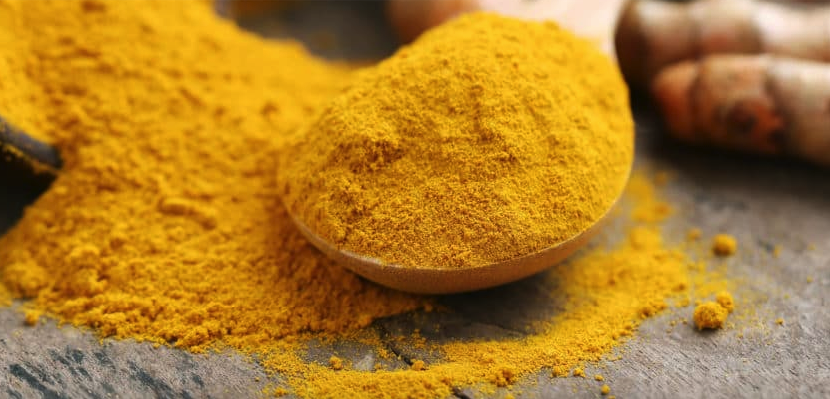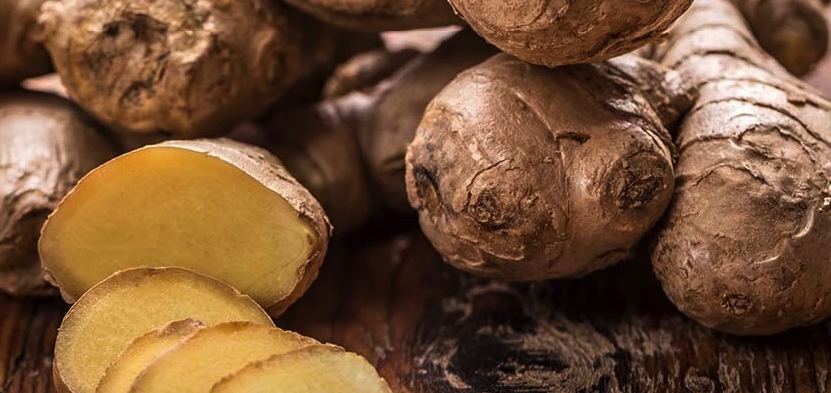Nutmeg is a type of spice or seed that is aromatic and fragrant (1). You will see or taste nutmeg in food like baked goods, meat, potatoes, puddings, vegetables, and much more.
This spice or seed comes from the tropical evergreen tree of the Myristicaceae family (2).
In medieval meals, nutmeg was famous for its medicinal and as a preservative. In the middle ages, people often thought that nutmeg had the power to ward off the common cold and even prevent the bubonic plague. Because so many people believed this, nutmeg was worth extremely valuable then.
Nutmeg is famous for its dark brown color and robust flavor, which is why it goes so well on desserts and baked goods.
Fun Fact:The nutmeg tree is native to the Banda Islands of Indonesia and it produces two different spices: nutmeg and mace.
Table of Contents
Health Benefits of Nutmeg
This spice can bring many health benefits, despite its long-standing belief it could ward off the plague.
Check out the information below to see the health benefits of nutmeg, along with the potential risks. Plus, find out how to start adding more nutmeg to your diet.
1. It May Improve Brain Health
Many foods and spices can improve brain health, and nutmeg is one of them. Nutmeg can help improve memory, concentration, and even more (3).
Spices like nutmeg were around for centuries as medicinal agents, as well as food additives. Did you know some studies even show that nutmeg can help prevent the risk of getting Alzheimer’s disease (4)? Nutmeg suppresses inflammatory pathways in the brain and body, which can help to decrease the risk of Alzheimer’s disease (5).
This spice can help to give your brain a boost and enhance cognitive performance (6). Although more research is necessary to support nutmeg as a preventative for Alzheimer’s disease, there is some evidence that it can help enhance memory, concentration, and more (7).
See if adding some nutmeg to your diet helps improve your memory, concentration, and perhaps even more.
Summary:Nutmeg has been proved to be a spice that may help improve memory, concentration, and may prevent conditions like Alzheimer’s disease.
2. It May Improve Blood Circulation
Did you know that nutmeg can even improve blood circulation (8)? Proper blood flow is necessary to maintain a healthy heart, muscles that make up the circulatory system (9).
Nutmeg oil can even help to alleviate chronic inflammatory pain brought on by joint swelling. It can come in handy as a pain reliever, too (10).
Try to add nutmeg to your diet to assist with your blood circulation, along with a lifestyle of healthy habits.
Summary:Some studies have suggested that nutmeg may improve blood circulation.
3. It Can Enhance Hair and Skin Health
Who does not want a healthier head of hair and better nails? Adding nutmeg can help with both your hair and skin health (11). For healthy hair and skin, a healthy diet and lifestyle are necessary, but adding in nutmeg can also help.
In one study in the National Institutes of Health (NIH), nutmeg promoted skin health by decreasing skin aging (12). Nutmeg has many antioxidants, making it a potent force against free radicals (13). Free radicals can increase oxidative stress in the body, leading to hair and skin damage.
Do not be afraid to add a little nutmeg to your next meal or drink to boost the health of your skin and hair.
Summary:The nutrients in nutmeg, including antioxidants, are great hair and skin boosters.
4. It May Help Fight Infections
Nutmeg is naturally high in flavonoids that contain antioxidants, giving them potent anti-inflammatory compounds (14).
Diseases and infections exacerbate when there is too much inflammation in the body. Nutmeg can help to fight infections such as skin infections, because of the high antioxidant properties (15).
See if adding nutmeg to your routine helps you fight skin infections and more.
Summary:The antioxidants in nutmeg, one of them being flavonoids, help with inflammation and may help fight infections.
5. It Can Reduce Insomnia
Do you suffer from sleeplessness often? Nutmeg can even help to reduce insomnia and improve the quality of your sleep which was seen in animal studies (16).
Sleep is arguably more important than improving your diet first. Without adequate sleep, it is hard to process the nutrients we need. Lack of sleep can even make you crave more unhealthy foods (17).
Nutmeg can be a potent addition to your routine if you have insomnia. Try adding some warm milk with nutmeg to your bedtime routine to see if you can have a better night’s sleep.
Summary:Animal studies have shown to improve sleep quality and have been suggested to help prevent issues like insomnia.
6. It May Enhance the Immune System
Adding new foods like nutmeg may even help to enhance your immune system (18).
Nutmeg can help to boost your immunity due to its profile of antioxidants (19).
This ancient spice dates back for centuries, and it can still be a helpful solution to enhance your immune system, along with a healthy diet and lifestyle.
Summary:Because of the antioxidants in nutmeg, adding nutmeg into the diet may help enhance immunity.
Where Can You Add Nutmeg?
Although nutmeg is a pungent spice and seed, you can use it on many different products. Look at the list below to see where to add in more nutmeg today.
Add more cardamom to your diet and life by trying:
- Add some nutmeg to coffee, tea, or even milk
- Add it to your favorite dessert or baked good
- Many dishes like chicken, lamb chop recipes, and more
- Mix nutmeg and ginger into a homemade tea
You can easily reap the many health benefits of nutmeg by adding it to your spice rack for everyday use on many different foods. Where can you start adding nutmeg to reap the benefits of your meals this week?
Fun Fact:Whole nutmeg keeps almost indefinitely stored in airtight containers, but ground nutmeg loses its flavor very quick.
Are There Any Risks for using Nutmeg?
Nutmeg in small amounts is safe for most people, but there are some cases where nutmeg can cause serious side effects and health risks (20).
You would need to consume 120 mg or more of nutmeg for any of these side effects to occur (21).
Some rare but severe side effects of too much nutmeg include:
- Hallucination
- Nausea or vomiting
- Dry mouth
- Dizziness
- Agitation
- Irregular heartbeat
- Even death
These side effects are only possible if you consume 120 mg or more of nutmeg per day for an extended period .
You can buy cardamom in many different forms such as capsule pills and spice. It is also available as an essential oil. This spice has many health benefits, so see if adding it to your diet, in the natural form, can help today.
Always be cautious about the types of medications you take before adding an herbal supplement. If you are taking any medication, ask your doctor if nutmeg is ok to add to your daily routine as a supplement. Adding in the spice or essential oil is generally safe for most people.
Summary:Nutmeg is safe in small amounts, but may cause some side effects when consumed at larger amounts.
Conclusion
There are many health benefits of adding nutmeg to your diet more often. From improving skin and hair health to boosting the immune system, and more, nutmeg can be a useful spice to keep around.
Using nutmeg in foods is generally safe for most people. There is typically no need to worry about overdose when it comes to adding it to your food. But if you want to try a supplement, be sure to be mindful of the dosage and ask your doctor if you are taking medications.
Nutmeg can come with numerous serious side effects when taken in excess.
Always do what is right for your body and monitor how certain spices react with your body.













